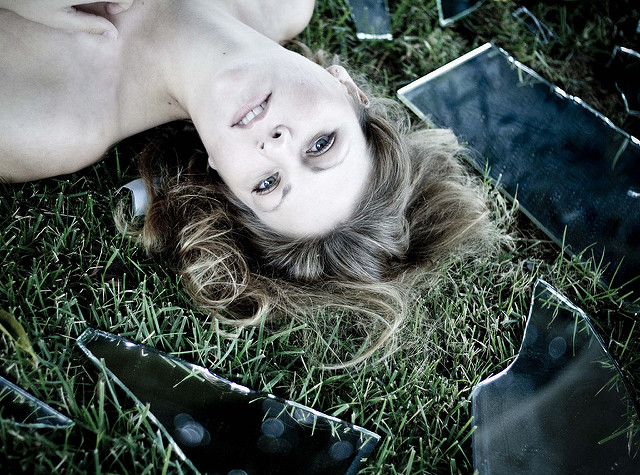
Ares: “They don’t deserve your protection!”
Diana Prince: “It’s not about deserve, it’s about what you believe. And I believe in love.” ~ Wonder Woman
~
People often say that children embody our hope for the future.
There is certainly truth to this. There is something beautiful and hopeful about a child’s doe-eyed view of life and their candy-cane visions of an ideal world.
Most of us remember this vision of the world, for we likely had it as children, too—a vision of happy endings and bad guys getting caught. People take selfies with cute puppies, not keep them in depraved conditions. Well-intentioned adults help reunite children with parents, not prey on them. And police officers, doctors, teachers, spiritual leaders, and other authority figures choose their profession for one reason only: to serve the highest good—not, well, for all the other reasons they sometimes do.
In this vision, humanity collects wisdom and deploys it to further the care, well-being, education, health, and dignity of all beings everywhere.
Of course, we adults know that this picturesque, ideal world is fantasy. We’ve had our noses in the real world in a way that (hopefully most) children have not experienced yet. Enough life experiences, losses, betrayals, and shattered dreams can disillusion even the most idealistic of us. And it’s not just events that knock the idealistic stuffing out of us; people can surprise us too, in their conscious or unconscious efforts to block, deny, manipulate, or in any other way invalidate the idealist within us.
So, I understand as well as anyone the urge to want to hand the baton of idealism off to the next generation and let the realist within us take over.
The realist says:
“Don’t trust strangers.”
“Don’t trust authority figures.”
“Count your change.”
“Prepare for the worst, and hope for the best.”
“Don’t count your chickens before they hatch.”
And this one is from my husband, a true realist and football lover: “Don’t out-kick your coverage.”
The realist says it’s no longer practical or healthy or worth the energy to remain idealistic. Our “adulting” has jaded us, and so idealism is best left to naïve wishful-thinkers, artists, and hopeless romantics. Best left to the innocent, unmarred youth. Better to just pay our bills, watch the world through a TV or cellphone screen, and live our lives as narrow-eyed, “I told you so” realists.
Realism does have some merit. Street smarts are the realm of the realist, not the idealist. We can’t walk through life blind to the possibilities. It’s valuable to know how and when to put our guard up, even if we don’t end up needing it. It’s smart to consider worst-case scenarios, even if they never occur. It’s wise to write-up detailed legal contracts (one of my personal lessons), instead of trusting entirely in someone else’s word.
But the realist, given too much power, can paralyze us into non-action. In contrast to the idealist—who holds a “kumbaya” approach to life—the realist harbors a dog-eat-dog mentality. With this, we can easily buy into the cheap rhetoric of “us” versus “them.” We can become hardened and say “it’s just the way it is,” failing to see reason for hope. We can grow old in a way that has nothing to do with age. We can lose our sense of magic, beauty, and possibility. We can become cynical and closed-minded—even angry, hateful, vindictive, and suspicious. And then, we can hand down this skewed view of life to our children, who, incidentally, we simultaneously task with bringing us hope.
That’s just not practical.
How are children supposed to carry the hope for the world if the adults they look to for inspiration are cynical? From where are they to draw their youthful enthusiasm and zest for life if those of us modeling for them don’t believe it’s practical?
Realism is an asset. But not if it drowns out our idealism.
Children cannot carry hope in this world without us holding the vision steady for them.
But, the idealist pipes up, the vision isn’t good enough! This may well be, but we must understand that if we won’t accept anything that’s less than ideal, we’ll sideline ourselves from life entirely—something I call “tripping over my idealism.” This is when I stubbornly choose to do nothing—disengaging, withdrawing, giving up—rather than do something that might not be quite up to the standards I’d like to see or offer. It’s when cynicism creeps into the idealism because the approach, movement, or person isn’t “perfect.”
Idealism is an asset. But not if it’s the only voice we’ll listen to.
Just like the divide we see in the world right now, it’s time to let these two sides of ourselves—the idealist and the realist—unite rather than further paralyze, fight, and negate each other. As role models, as citizens, as adults, we must find a way to dip our idealism in our realism—like a watercolor pencil in water—if we are to paint a new picture.
So, let’s reawaken our disillusioned idealist and let ourselves dream again. Let’s speak up for our dreams, even if people laugh and call us naïve. Let’s work toward a better future every day, even if there is no promise we will see our work come to fruition in our lifetime. A lesson I’ve learned from writing classes is valuable here: let’s not tell our children they carry the hope for the world; let’s show them how. Not just for their sake, but for ours, too.
Maybe progress is less about leaps and bounds, and more about baby steps. Maybe it’s less about the world deserving our efforts, as Diana says in “Wonder Woman,” and more about simply believing in them enough. Maybe it’s not about kumbaya or dog-eat-dog, but something more like the children’s game of hide-n-seek: “Ready or not, here I come.”
For me, this means I offer my services, thoughts, and assistance, even when I know there are people who offer them better. I support people and movements whose intentions are aligned with the higher good, even when they will inevitably make mistakes. I speak words of comfort, condolences, encouragement, or support, even while acknowledging there must be a better way to say them. I pick up my pen, even when I know my words will never be perfect.
Because like an idealist, I live in this world as if superheroes exist—even as I acknowledge that we are only human, like a realist.
~
Relephant:
Embracing the Life Cycle of our Creations.
~
~
Author: Keri Mangis
Image: John Castillo/Flickr
Editor: Callie Rushton
Copy Editor: Travis May
Social Editor: Danielle Beutell










Read 0 comments and reply